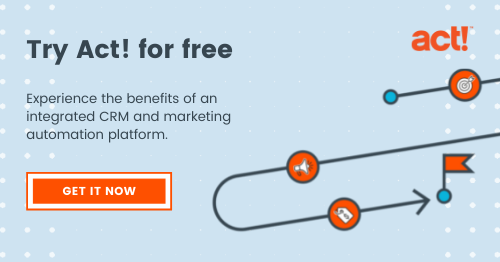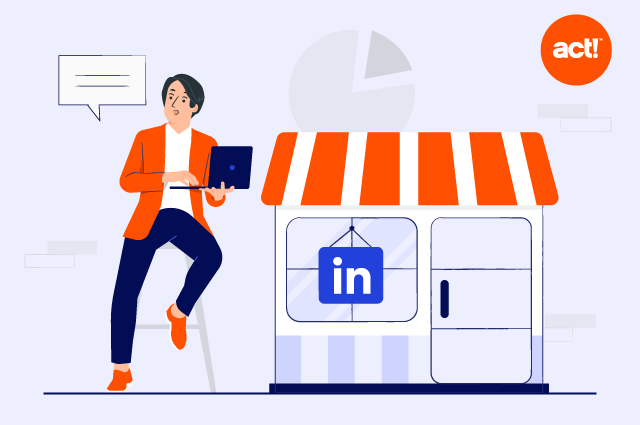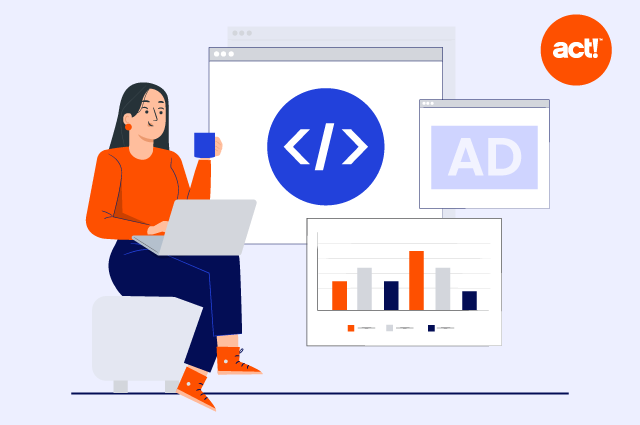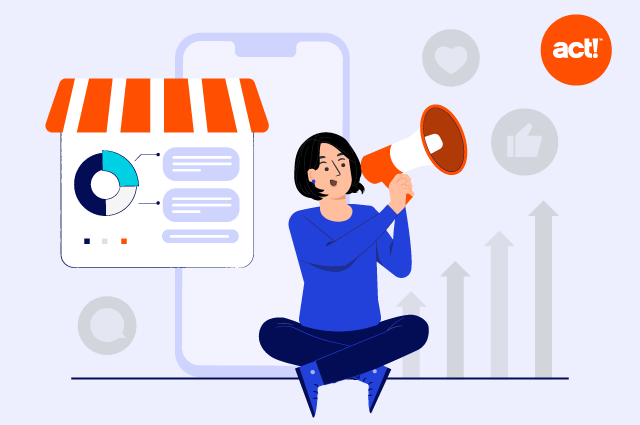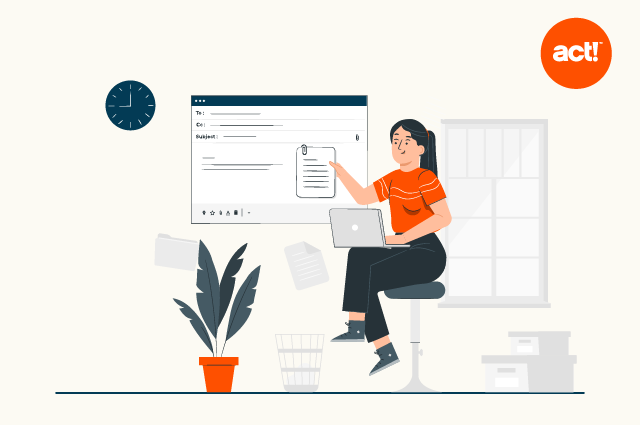
Did you know that 76 percent of consumers say they’re more likely to buy from brands that offer a personalized experience?
To make your customers feel special and turn them into brand loyalists, you must understand their preferences and tailor your marketing to their needs. Your website content, product listings, email messaging, and advertisements should be relevant to your audience’s interests to drive conversions.
But you can’t do that without using automation and personalization tools.
In this article, we’ll show you how you can create personalized marketing campaigns for your small business using automation and CRM software. In addition, we’ll discuss different examples of automated marketing personalization and how small businesses use them to create tailored customer experiences.

What is marketing personalization, and why does it matter?
In simplest terms, marketing personalization is tailoring your messaging and content to your audience’s needs, interests, and preferences. Instead of showing generic content, personalized marketing campaigns are optimized around audience interests based on their past activity, their unique customer journey stage, and their interaction with your brand.
Amazon is an excellent example of how brands use personalized marketing. When you first visit Amazon, it shows you products based on your region’s consumer preferences. However, Amazon tailors its product recommendations for repeat visitors based on previous browsing patterns.
Why does it matter? Research shows that marketing personalization can increase revenues by 40 percent because today’s customers have short attention spans and do not have the patience to browse generic product catalogs. Personalizing experiences by providing content that addresses your customers’ needs saves them time and simplifies their buying decisions, which generally leads to higher conversions and increased customer retention.
However, unlike real-world customer interaction, online marketing personalization is only possible through automation. To offer custom experiences, you must collect customer data and analyze user behavior. Based on these insights, you can create automated and personalized marketing campaigns.
This is where an all-in-one marketing automation and CRM software solution like Act! comes in.

How marketing automation and CRM tools enable personalization
Customer relationship management (CRM) software tracks customer engagement and interaction with your brand across multiple touchpoints. It also provides real-time insights into customer behavior, preferences, and interests.
For example, when visitors sign up for your email list, your CRM records their name, email address, location, referral touchpoint, and other critical information. Whenever this visitor contacts you via email, you can track their complete details through your CRM, including their past interactions with your marketing team or responses to your surveys.
Marketing automation software allows you to turn the insights from your CRM into automated marketing campaigns. Using the data from your CRM, marketing automation tools let you segment your audience, track their peak activity times, approach them on their preferred platforms, and optimize their engagement with your business.
Act! is both a CRM and marketing automation platform and it empowers your sales, marketing, and customer support teams by providing a central tracking interface where you can streamline and learn everything about how customers interact with your brand.
It also provides you with the tools to create automated workflows to generate leads and launch personalized marketing campaigns that speak directly to your audience. Act! helps you create fully personalized and automated customer experiences.
5 ways CRM and marketing automation software can personalize your communications
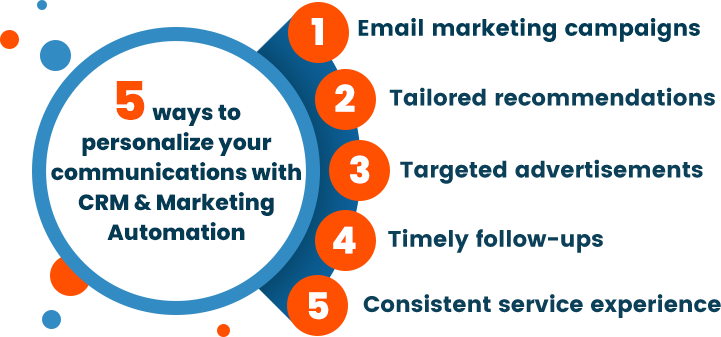
Let us show you a few examples to help you understand how marketing automation and personalization help your small business grow.
1. Personalized email marketing campaigns
Have you ever noticed how emails from your favorite brands address you by name? This is a small example of personalized marketing automation. Brands use email marketing automation tools to trigger email campaigns with personalized messages geared to answer your questions or provide relevant offers because you signed up for their distro list.
Even if there are a million subscribers, everyone gets an email with their name because marketing automation tools fetch this information from their databases.
Abandoned cart emails are another example of email personalization. When you leave an e-commerce site after adding products to the cart, it automatically sends you a personalized reminder email to complete the purchase. Research shows that these emails have a 39 percent open rate and help brands recover a significant chunk of their lost sales.
You can use them to offer discounted pricing or offer additional incentives to potential customers to incentivize them to complete the purchase.
2. Tailored product recommendations
Tailored product recommendations are another classic example of how personalization enhances customer experience and increases sales. Instead of showing the same products to everyone, brands use personalization to display relevant products based on a visitor’s past purchases and browsing activity.
Similarly, automation tools enable brands to email product updates and enhancements to users who’ve shown interest or purchased from them in the past. Email software uses customer segmentation to organize subscribers according to interests, demographics, activity, and other critical metrics.
For example, if you have a special discount offer in a specific product category, personalization allows you to notify people who’ve purchased products in that category instead of spamming everyone. This drastically improves your conversion rates and marketing strategy ROI.

3. Targeted advertisements
Personalization is critical to the success of social media advertising campaigns. This is why Facebook, Instagram, TikTok, LinkedIn, Google, and other online platforms give advertisers detailed targeting filters, allowing them to show ads based on user location, behavior, interests, gender, and other attributes.
But retargeting takes personalization to another level.
It allows you to show ads to users who’ve recently visited your site and left without taking action. So, let’s say you create a landing page with your marketing automation tool and add your Facebook Pixel code to it. Now, Facebook will track every visitor to your landing page. If they use Facebook, too, they’ll see your ads.
Advanced automation platforms let you approach such users through email with personalized discounts and offers. Naturally, the conversion rates for these ads are higher because they’re more specific to the user’s recent browsing trends.
4. Timely follow-ups and reminders
CRM integration helps you fully automate your sales and marketing efforts and customer support follow-ups. Instead of manually tracking the users whose subscription expires soon, you can use an email template and quickly configure an automated email sequence for your CRM to trigger as soon as a current customer enters the last quarter of their subscription.
Similarly, you can schedule fully personalized and automated follow-up emails by defining your targeting criteria. For example, if users don’t click on the URL in your first email, they’ll automatically receive a follow-up email three days later.
This functionality allows you to automate your whole lead generation process, simplifies your sales and support team members’ jobs, and drastically increases retention rates due to timely communication.
5. Consistent service experience
An automated CRM system tracks all user interactions and provides service agents with a complete service history. CRMs also have lead-scoring systems that automatically gauge a user’s satisfaction and likelihood of converting into a customer or renewing their business with your brand.
Tracking these metrics allows your teams to offer a personalized service experience, regardless of the agent handling the customer issue. They don’t need to annoy the customer by repeatedly asking the same questions or investigating the same problems. Instead, they can rely on the CRM records and focus on resolving the issue.
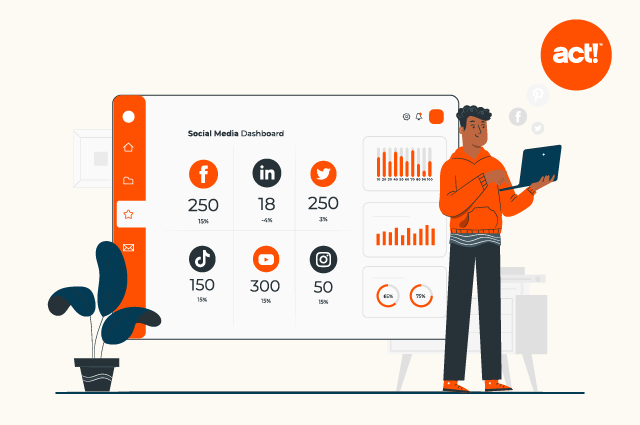
Embrace automated personalization to scale your business
With the rise of AI, integrated marketing automation, and modern CRM systems, you can apply personalization at scale. It not only makes your messaging more timely and impactful but also frees up valuable resources, allowing you to focus on growth instead of staying caught up in day-to-day operations.
So, if you still haven’t experienced personalized marketing automation, sign up for a free Act! trial to take your business to the next level.



